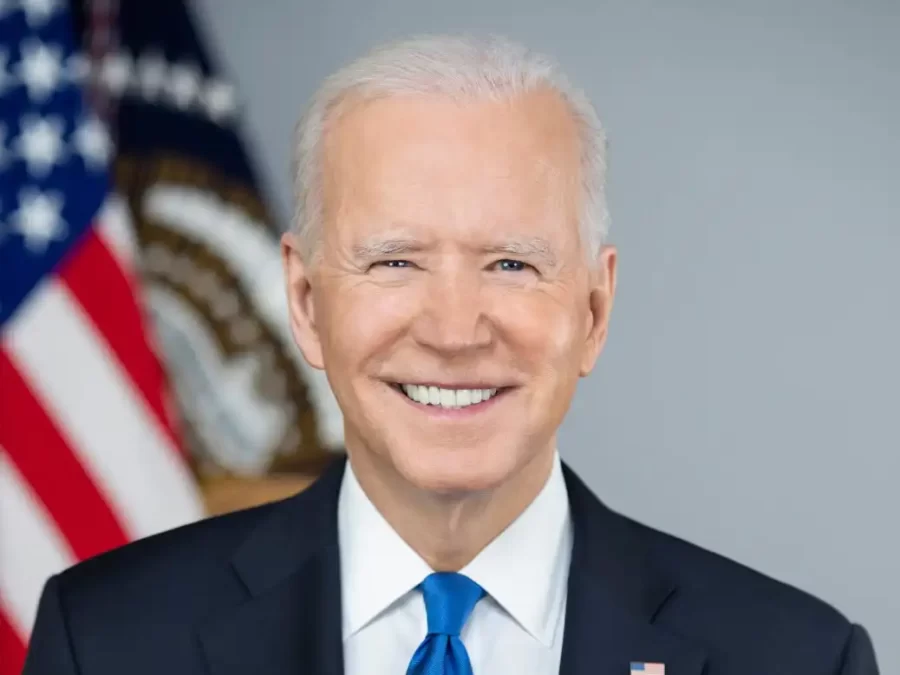UWL students express opinions on President Joe Biden’s first year in office
February 16, 2022
January 20, 2022, marked the one-year anniversary of Joe Biden’s inauguration as the 46th president of the United States. Amidst the COVID-19 pandemic, economic inflation, the climate crisis, and more, President Biden had much to address during his first year in office.
Concerning the COVID-19 pandemic, Biden improved testing, expanded production of personal protective equipment, safe vaccine development, and the safe reopening of schools. Biden also created the Build Back Better plan, which aimed at tackling climate change, racial equity, and reinvestment in American manufacturing.
The Racquet Press sat down with three students from the University of Wisconsin-La Crosse — all with different political affiliations — to hear their thoughts on Pres. Biden’s first year as president.
Tyler Harris is a junior majoring in political science and minoring in legal studies. Harris hopes to attend law school with a focus on social justice, following his graduation next spring.
Isaac Ozolins is a junior majoring in physics and has been a part of the UWL College Republicans student organization for two years. Ozolins has recently stepped into the Chairman position of the organization.
Grace Florence is a freshman double-majoring in political science and economics. Florence joined the UWL College Democrats her first semester and has recently stepped into the organization’s Chairwoman position.
Q1: How do you feel the first year of Biden’s presidency went?
Harris: “From the perspective of an undergrad student, the Biden administration’s expectations were objectively too high. People expected more than what was realistic, just like with any other president. The Biden administration is in one the most politically polarizing times, with the COVID-19 pandemic, international conflict with Ukraine and Russia, and the past 2 presidencies have exposed how much politics ebbs and flows with wealth in America. He’s done well with addressing the public as a whole, and stressing that he’s a president of all people, not just a president for people who voted for him.”
Ozolins: “It could’ve been a lot worse. The infrastructure bill is a great example of how he is spending money that we don’t have, especially when inflation is so high. Rural voters don’t have the money to spend on things like the green energy policy, that’s not where their focus is right now.”
Florence: “I think Biden had a lot going against going into office, with COVID-19. I think any president would have had to deal with some inflation right now. I think the withdrawal of American forces from Afghanistan was poorly mismanaged, and they could have done a better job with that. However, I would like to mention the American Rescue Plan [COVID-19 stimulus package] which has helped many Americans get through this difficult time.”
Q2: What do you predict his second year (and beyond) will bring?
Harris: “I think that he’s going to have to do more to uphold his promises with things such as voting rights, Build Back Better, student loan debt, and climate activism. In terms of him wanting to maintain his status in presidential history and if he wants to run again, he’ll need to do more to establish some legitimacy.”
Ozolins: “From a Republican point of view, I think the next couple of years will bring unexpected things. If the president is doing a lot of crazy things, meaning something that would bring big, shocking change to people, they will continue to oppose his policy moves. I believe we will see a lot of political posturing and a lot of bills that go in but aren’t meant to be passed.”
Florence: “We can’t really trust polls, as we’ve learned the past few years, they can be very unreliable and not very predictable. I think it’s hard to say, and it will depend on whether the federal leadership is going to start acting more like our local government, more effective and responsive to the public, or if they’re going to continue this political polarization.”
Q3: How do you feel political polarization has changed since the Trump Administration?
Harris: “Political polarization is tricky nowadays. It seems that politicians just side with a party and run the gambit of trying to see who gets more power.”
Ozolins: “I don’t think it’s going to go away; I think it will continue increasing as time goes on. Right now, I don’t think either party agrees on anything. Political donors from both sides have no incentive to work together.”
Florence: “I think that we have become a lot more polarized since the Trump Administration. Democrats who didn’t like Republicans hate them more, and vice versa. I think political polarization is very toxic, and it has the potential to bring [the Democratic party] down a lot. We must work together because we all just want what’s best for the nation at the end of the day. Unless we overcome polarization and stop hating people solely based on political affiliation, we’re not going to get anything productive passed; this is a huge issue.
Q4: How do you predict political polarization will change going forward?
Harris: “People should find it very important that there is a lot of conflict within both parties themselves. You have Democrats like Nancy Pelosi who are very traditional and engrained in the Democratic party, and then you have progressives like Alexandria Ocasio-Cortez. You have this split in the Democratic party trying to decide what they stand for, and how much they will or won’t stray from the norm. To have this duality between realistic Democrats who are being moved by wealth, and those who are trying to be idealistic and do objectively what’s best for the world if the most ideal circumstances came to be, is very interesting.”
Ozolins: “The Republican party is transitioning into a younger conservative party, which is more focused on social values rather than economic ones. Many conservatives feel tired of having to deal with the world’s problems, especially when they feel their money is going away and minimum wage is still the same in many workplaces. I feel the younger conservative party is clashing with the older one during this time of transition. Because of this, I feel political polarization will continue to increase.”
Florence: “I think politicians are going to continue getting more set in their views. As this happens, I think political polarization will continue to get worse. I really think that from a Democratic point of view that things will get worse, and people will get more set in their ways.”
To learn more about the Biden administration’s first year, policies, and other information, please visit https://www.whitehouse.gov.







